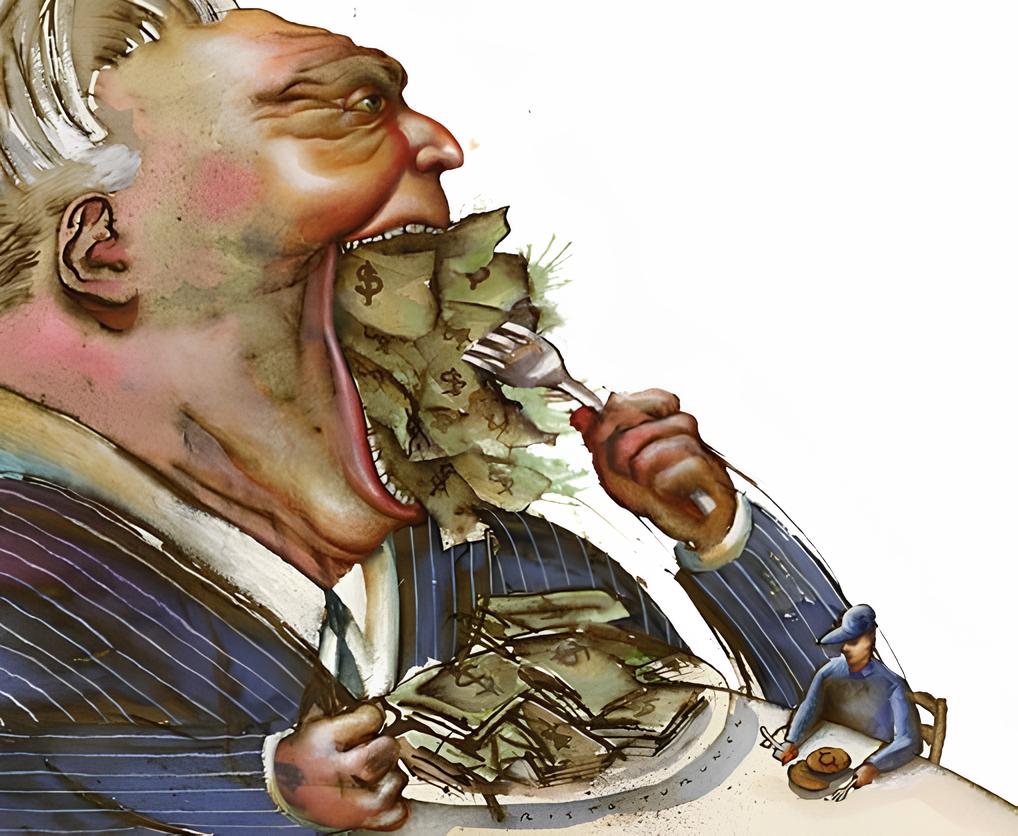In Buddhism, (greed/craving) is one of the three poisons (tam độc) that cause suffering for humans, along with sân (hatred/anger) and si (ignorance/delusion). Tham is the strong desire, attachment, and insatiable craving to possess what we like – such as possessions, beauty, fame, power, emotions, or even other people.
Why Does Greed Cause Suffering?
- Greed is attachment: When a person desires to possess something, their mind clings to it. If they don’t achieve it, they suffer; if they do achieve it, they worry about losing it or fear change. Thus, suffering is always present. For example, if we are excessively attached to money, we will suffer if we lose it or fail to achieve our financial desires.
- Greed has no end: Desires are bottomless; having one leads to wanting two, three… This creates an endless cycle of craving, leading to restlessness and fatigue. The greater the desire and the higher the expectation, the deeper the disappointment when it’s not achieved. It’s never enough – the mind always craves more (like “pouring seawater into the mouth of a thirsty person”).
- Greed leads to unwholesome actions: Greed can lead to lying, stealing, killing, and harming others to achieve one’s goals. These actions create negative karma, leading to consequences in the present and future. Many social conflicts, wars, and animosities originate from greed.
- Greed obscures wisdom: When the mind is dominated by desire, it’s difficult for people to see the true nature of things, leading to wrong actions and the loss of inner peace.
How to Overcome Greed According to Buddhist Views
- Contemplate impermanence (vô thường): Understand that everything in life is impermanent and will not last forever, such as possessions, fame, beauty, status, etc. Clinging to something impermanent is self-inflicted suffering. From this understanding, we lessen attachment and let go. For example, beauty will fade, money can be lost, loved ones can depart.
- Contemplate suffering (khổ): See clearly that craving itself is the cause of suffering. From this, the mind gradually lets go. When we understand that all satisfactions are fleeting, we no longer chase after them.
- Contemplate non-self (vô ngã) to reduce the ego: There is no true “self” to possess anything. What is called “mine” is merely an illusion. Things we consider “ours” are truly external and can depart at any moment. By letting go of the notions “I need,” “I want,” “I have,” greed gradually dissipates.
- Practice meditation: Meditation helps us recognize and observe greed as it arises. From this mindfulness, the mind is not drawn by desire. Practicing meditation helps the mind dwell in the present. When the mind dwells in the present, observing without attachment, we gradually realize the true nature of phenomena and let go of craving. Additionally, meditation helps the mind become clear, see through reality, and not be swayed by desires.
- Practice generosity (bố thí) and loving-kindness (từ bi): Generosity directly counters greed. The more we give, the more open our mind becomes, letting go of possessiveness and cultivating loving-kindness. Loving-kindness helps transform greed into unconditional love.
- Observe precepts (giới): Precepts help limit actions arising from greed. For example: not stealing, not engaging in sexual misconduct, not lying… Observing precepts helps the mind become pure, gradually eradicating craving.
- Cultivate wisdom: Through learning, contemplation, and clearly understanding the nature of suffering – caused by greed, hatred, and ignorance – wisdom arises, making it easier to let go.
In summary:
Greed is the root cause that leads humans to create karma, resulting in the cycle of birth and death (samsara), because greed gives rise to attachment, suffering, and ignorance. Buddhism does not teach the suppression of desires, but rather their transformation through wisdom, meditation, compassion, and letting go. When greed is overcome, people find inner peace and liberation. Eradicating greed does not mean rejecting life, but rather living with wisdom, knowing contentment, and being unattached, thereby achieving true peace and freedom.


ARTICLES IN THE SAME CATEGORY
Spring Pilgrimages and Early Year Temple Visits: Preserving the Cultural Soul of Vietnam Amid Modern Spiritual Distortions
Why Donald Trump is Repealing the “Endangerment Finding”: Where Will Humanity Go if Earth Exceeds Its Limits?
Copper is emerging as a strategic metal that superpowers will compete fiercely for.
The Epstein Files and the Shadow of Power: When Dark Rumors Reflect Back Through Cinema
The More You Boast, the Cheaper Your Value Becomes
2026 Lunar New Year Holiday Schedule – Year of the Fire Horse – VietNam
ARTICLES IN THE SAME GENRE
Spring Pilgrimages and Early Year Temple Visits: Preserving the Cultural Soul of Vietnam Amid Modern Spiritual Distortions
Why Donald Trump is Repealing the “Endangerment Finding”: Where Will Humanity Go if Earth Exceeds Its Limits?
The More You Boast, the Cheaper Your Value Becomes
Seven Parts of Life Go Against Our Wishes, Clinging Only Deepens the Suffering
Live contentedly, be satisfied with what you have, and maintain an optimistic outlook on life. These are simple yet wise principles.
People constantly chase after desires, but in the end, when they achieve them and look back, they are left feeling empty.